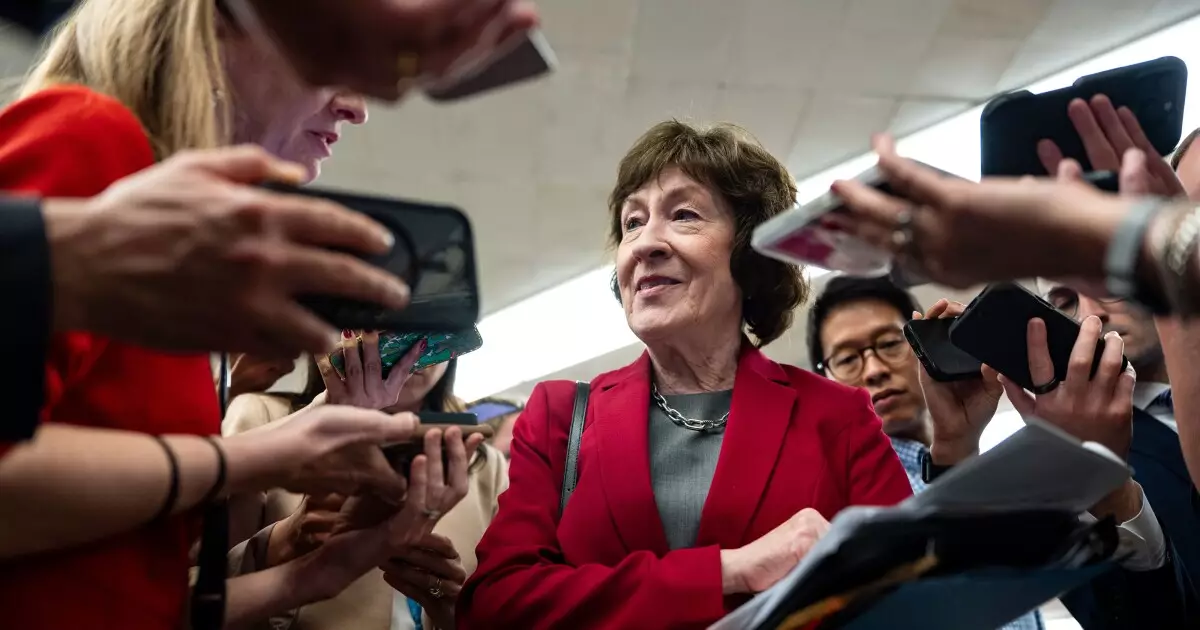Despite recent bipartisan efforts to pass key appropriations for 2026, the underlying fiscal framework remains precariously fragile. While the Senate’s recent approval of select appropriations bills signals moments of cooperation, it falsely reassures that the government’s finances are on a stable trajectory. In reality, the legislative progress is superficial, masking the looming threat of a shutdown that could cripple essential services. The bipartisan nature of this legislative dance is commendable, yet it is fundamentally symptomatic of an imperfect system that relies heavily on last-minute agreements and political brinkmanship. It’s an unsettling reflection of a policymaking process that has been hamstrung by partisan gridlock, with meaningful negotiations only emerging when deadlines press in.
Systemic Shortcomings Threaten Government Functionality
With only nine of the twelve appropriations bills negotiated and the remaining three stalled—most notably the Commerce-Justice-Science bill—the U.S. government remains on the brink of chaos. The failure to pass comprehensive funding before the September 30 deadline is not merely a procedural hiccup; it exposes the brittle foundation of America’s fiscal governance. The reliance on temporary continuing resolutions underscores the systemic failure to establish long-term priorities and fiscal discipline. As the federal government operates under a year-long CR, critical sectors such as transportation, healthcare, and education face the uncertainty of federal funding cuts. These are not hypothetical concerns—they threaten to destabilize vital sectors and exacerbate already strained municipal economies.
Market Implications and Political Skepticism
The potential for a government shutdown carries significant consequences for the municipal bond market. Specifically, securities like Build America Bonds are vulnerable to automatic sequestration cuts—something predicted at approximately 5.7%—which could decimate investment in infrastructure and public projects. Such automatic reductions underscore a failure of policy foresight, exposing taxpayers and municipalities to avoidable financial pain. Political actors, particularly within the Democratic ranks, have voiced skepticism about the executive branch’s attempts to manipulate or rescind budget authority through impoundment and rescissions. This debate highlights a core inequality: policymakers often want control over spending, but also rely on political brinkmanship to force concessions. It reveals a fundamental disagreement about fiscal sovereignty and the role of Congress versus executive power.
Strategic Misjudgments and the Lack of a Unified Approach
Efforts to craft a comprehensive budget have been hampered by strategic miscalculations from all sides. The Trump administration’s push for sequestration and austere spending cuts, coupled with congressional resistance, reveals a misguided focus on short-term austerity over sustainable fiscal planning. The bipartisan approval of some bills—such as the agriculture and legislative appropriations—appears to be a superficial victory, yet these do not address the core issues: long-term debt, inefficient government programs, and the inability to enact responsible fiscal reforms. The ongoing debate over allocations—like the reductions in urban development funds—exposes growing ideological divides that threaten any semblance of a united fiscal strategy. It’s increasingly clear that the path forward requires more than bipartisan gestures; it demands a fundamental reappraisal of how the government prioritizes and manages taxpayer dollars in an era of fiscal turbulence.

